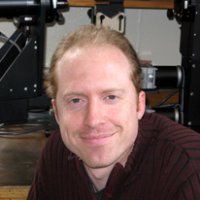collaboration
See the following -
Houston VA Research Center To Participate In National Initiative
The Department of Veteran Affairs has selected the Houston Health Services Research and Development Center of Excellence at the Michael E. DeBakey VA Medical Center to participate in a nationwide initiative. Read More »
- Login to post comments
How "Open Source" Seed Producers from the U.S. to India Are Changing Global Food Production
 Frank Morton has been breeding lettuce since the 1980s. His company offers 114 varieties, among them Outredgeous, which last year became the first plant that NASA astronauts grew and ate in space. For nearly 20 years, Morton’s work was limited only by his imagination and by how many different kinds of lettuce he could get his hands on. But in the early 2000s, he started noticing more and more lettuces were patented, meaning he would not be able to use them for breeding...
Frank Morton has been breeding lettuce since the 1980s. His company offers 114 varieties, among them Outredgeous, which last year became the first plant that NASA astronauts grew and ate in space. For nearly 20 years, Morton’s work was limited only by his imagination and by how many different kinds of lettuce he could get his hands on. But in the early 2000s, he started noticing more and more lettuces were patented, meaning he would not be able to use them for breeding...
- Login to post comments
How A Simple New Tool Helps Doctors Care For Patients -- After They Leave The Office
 We live in an increasingly connected world, but patients who receive treatment from multiple doctors and healthcare systems still face a lack of coordination in their care, which can put their health outcomes at risk. PatientPing is working to help doctors collaborate and create a more consistent experience for patients with simple technology that connects healthcare providers across facilities, systems and geographies...
We live in an increasingly connected world, but patients who receive treatment from multiple doctors and healthcare systems still face a lack of coordination in their care, which can put their health outcomes at risk. PatientPing is working to help doctors collaborate and create a more consistent experience for patients with simple technology that connects healthcare providers across facilities, systems and geographies...
- Login to post comments
How a University's 3D-Printed Prosthetics Club Provides Devices for Amputees
 Last fall, one of the co-founders of Duke University eNable published an article describing our club’s beginnings and visions for the future. In the spring of 2016, we started out as six engineering students with a passion for innovation and design, supported by a small stipend from the Innovation Co-Lab and a grant from OSPRI (Open Source Pedagogy, Research and Innovation), a project supported by Red Hat. Since then we have established ourselves as a presence on campus, grown into a large interdisciplinary team, and connected with multiple recipients—including a young boy in Milot, Haiti. The resources offered through Duke and the sponsorship we've received allow us to continuously transform our ideas into things we can share with open source enthusiasts, makers, and dreamers alike...
Last fall, one of the co-founders of Duke University eNable published an article describing our club’s beginnings and visions for the future. In the spring of 2016, we started out as six engineering students with a passion for innovation and design, supported by a small stipend from the Innovation Co-Lab and a grant from OSPRI (Open Source Pedagogy, Research and Innovation), a project supported by Red Hat. Since then we have established ourselves as a presence on campus, grown into a large interdisciplinary team, and connected with multiple recipients—including a young boy in Milot, Haiti. The resources offered through Duke and the sponsorship we've received allow us to continuously transform our ideas into things we can share with open source enthusiasts, makers, and dreamers alike...
- Login to post comments
How Apache Kafka is Powering a Real-Time Data Revolution
 Two years ago, Neha Narkhede co-founded a company called Confluent to build on her team's work with Apache Kafka. In this interview, we talk about how lots of companies are deploying Kafka and how that has led to a very busy GitHub repo. Narkhede will keynote at All Things Open in Raleigh, NC next week. Q: What was it like leaving LinkedIn to start your own company? Narkhede: It was a great experience and a natural extension of the mission that my co-founders and I had been working on for the past several years—of bringing Apache Kafka and our vision for a new future for a company's data architecture built around streaming data to the forefront...
Two years ago, Neha Narkhede co-founded a company called Confluent to build on her team's work with Apache Kafka. In this interview, we talk about how lots of companies are deploying Kafka and how that has led to a very busy GitHub repo. Narkhede will keynote at All Things Open in Raleigh, NC next week. Q: What was it like leaving LinkedIn to start your own company? Narkhede: It was a great experience and a natural extension of the mission that my co-founders and I had been working on for the past several years—of bringing Apache Kafka and our vision for a new future for a company's data architecture built around streaming data to the forefront...
- Login to post comments
How Disaster Relief Efforts Could Be Improved with Game Theory
 The number of disasters has doubled globally since the 1980s, with the damage and losses estimated at an average US$100 billion a year since the new millennium, and the number of people affected also growing. Hurricane Katrina in 2005 was the costliest natural disaster in the U.S., with estimates between $100 billion and $125 billion. The death toll of Katrina is still being debated, but we know that at least 2,000 were killed, and thousands were left homeless. Worldwide, the toll is staggering. The triple disaster of an earthquake, tsunami and nuclear meltdown that started March 11, 2011 in Fukushima, Japan killed thousands, as did the 2010 Haiti earthquake...
The number of disasters has doubled globally since the 1980s, with the damage and losses estimated at an average US$100 billion a year since the new millennium, and the number of people affected also growing. Hurricane Katrina in 2005 was the costliest natural disaster in the U.S., with estimates between $100 billion and $125 billion. The death toll of Katrina is still being debated, but we know that at least 2,000 were killed, and thousands were left homeless. Worldwide, the toll is staggering. The triple disaster of an earthquake, tsunami and nuclear meltdown that started March 11, 2011 in Fukushima, Japan killed thousands, as did the 2010 Haiti earthquake...
- Login to post comments
How Do You Measure the Value of Gov 2.0?
Creating sustainable, meaningful civic contributions to government is something I’ve addressed before, and it’s something that continues to elude us in the form of civic applications and hackathons, despite the overwhelming attention given to each.
- Login to post comments
How Does the ONC Define HIE, Value-Based Care, Population Health?
 The new ONC Health IT Playbook contains a wealth of resources and information for healthcare organizations in various stages of reform. From the very beginning stages of negotiating an EHR purchase to the complex integration of multiple care sites into a risk-based financial arrangement, there’s something for everyone at every level in this interactive, online compendium of knowledge...
The new ONC Health IT Playbook contains a wealth of resources and information for healthcare organizations in various stages of reform. From the very beginning stages of negotiating an EHR purchase to the complex integration of multiple care sites into a risk-based financial arrangement, there’s something for everyone at every level in this interactive, online compendium of knowledge...
- Login to post comments
How GitHub Helps You Hack The Government
On April 9th of last year, someone called Iceeey proposed a change to an obscure document written by the federal government’s Consumer Financial Protection Bureau. The document wasn't that important. [...] But this small request was a very big deal. Read More »
- Login to post comments
How Google Plans to Reinvent Healthcare
Glucose-monitoring contact lenses for diabetics, wrist computers that read diagnostic nanoparticles injected in the blood stream, implantable devices that modify electrical signals that pass along nerves, medication robots, human augmentation, human brain simulation -- the list goes on. That's not an inventory of improbable CGI effects from the latest sci-fi movie, it's a list of initiatives being tackled by Alphabet's Google Life Sciences research unit, recently rebranded Verily...
- Login to post comments
How Gurgaon Based Startup Knimbus Helps Scientists Share Findings and Connect with Peers
Melding together the features of popular social networking sites, a fledgling startup in Gurgaon has built a search and collaboration platform that aims to knock down the ivory towers confining global scientific research. Read More »
- Login to post comments
How Healthy Are We?
Reliable data on health is an essential part of a comprehensive health information system, which is central to evidence-informed, responsive decision-making for better public health program. A well-functioning health information system also helps policy-makers and program managers to monitor population health and plan interventions accordingly. In line with the vision of a Digital Bangladesh, one of the more significant changes that have happened in our health sector is transforming paper-based health reporting into an electronic health information system, along with initiating a medical record system through the Open MRS software...
- Login to post comments
How Maker Communities Align with Open Source
 The maker movement intersects deeply with open source. When I think of open source I normally think of the most hardcore bleeding-edge software or hardware development. But the maker movement has a long-established sharing culture, which really is nothing less than pure open source. The source code is a little different, however. For example, consider Nicole Curtis, the maker celebrity and TV star of Rehab Addict...
The maker movement intersects deeply with open source. When I think of open source I normally think of the most hardcore bleeding-edge software or hardware development. But the maker movement has a long-established sharing culture, which really is nothing less than pure open source. The source code is a little different, however. For example, consider Nicole Curtis, the maker celebrity and TV star of Rehab Addict...
- Login to post comments
How New OSS Communities And Code Bases Are Developed From Old Ones
Open source software developers modify significant amounts of source code for a variety of different reasons. Depending on the amount of modification, the number of developers doing the fragmentation (sometimes called a “fork” in the code), the status of these developers in the community, and the intention of the development community, the results could be just a few lines of updated code, or it could be a complete fork of the code base that takes the open source project in an entirely new direction. Read More »
- Login to post comments
How Open Government Is Helping With Hurricane Relief in Puerto Rico
 Just weeks after Hurricane Harvey hit Texas, two more "unprecedented" hurricanes made their way to the southeastern United States. Although changes in Hurricane Irma's path spared Florida from the bulk of the damage, both Irma and Maria directly hit Puerto Rico and the U.S. Virgin Islands. Hurricane Maria was particularly devastating for the more than 3.5 million American citizens living in these U.S. Caribbean territories. The CEO of Puerto Rico's sole electric company indicated that the grid had been "basically destroyed." Without electricity, communications were severely limited. In the aftermath of a natural disaster, embracing open government principles—such as open data, collaboration between citizens and government, and transparency—can save lives.
Just weeks after Hurricane Harvey hit Texas, two more "unprecedented" hurricanes made their way to the southeastern United States. Although changes in Hurricane Irma's path spared Florida from the bulk of the damage, both Irma and Maria directly hit Puerto Rico and the U.S. Virgin Islands. Hurricane Maria was particularly devastating for the more than 3.5 million American citizens living in these U.S. Caribbean territories. The CEO of Puerto Rico's sole electric company indicated that the grid had been "basically destroyed." Without electricity, communications were severely limited. In the aftermath of a natural disaster, embracing open government principles—such as open data, collaboration between citizens and government, and transparency—can save lives.
- Login to post comments